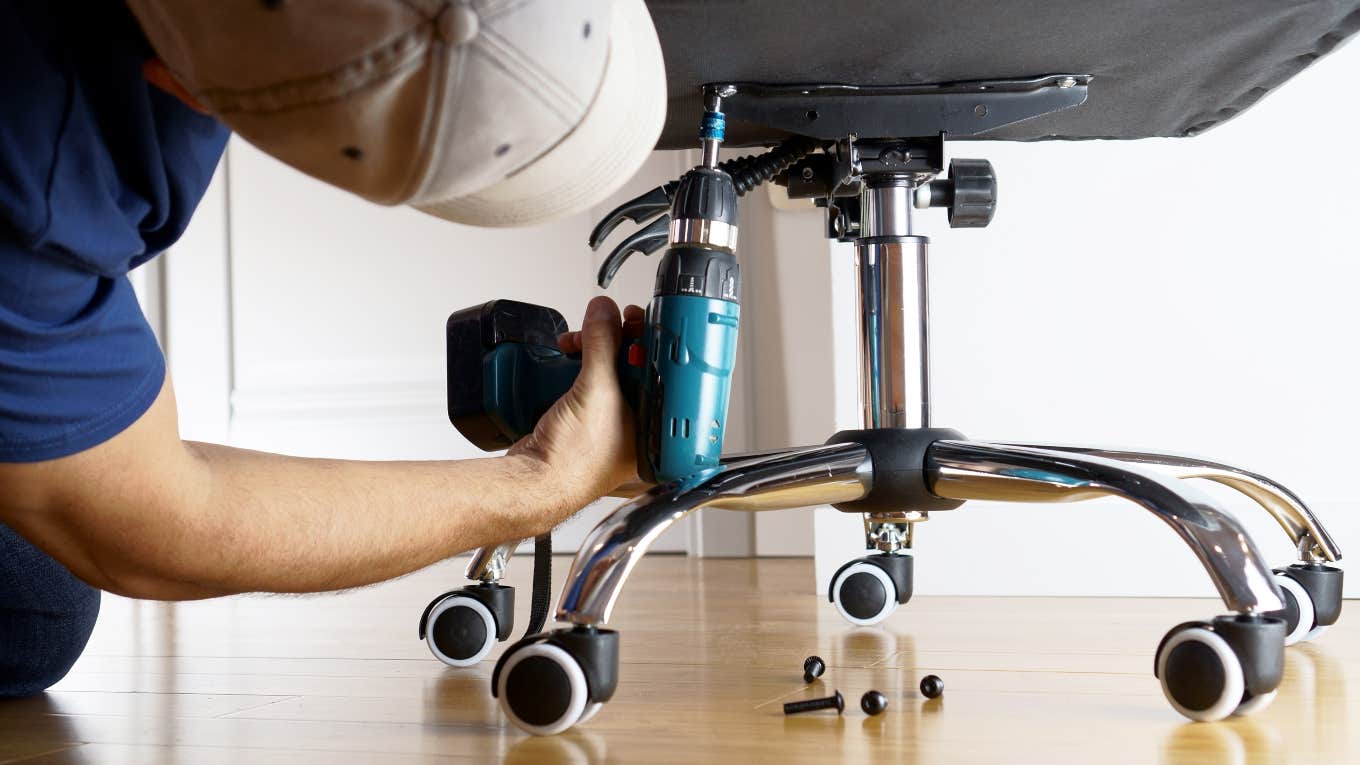Boss Uses ‘Wobbly Chair Test’ In Every Interview And Avoids Hiring Job Candidates That Fail
Would you speak up about a wobbly chair during a job interview?
 MODANO / Shutterstock
MODANO / Shutterstock Job interviews can be nerve-wracking, especially if you feel like that’s not the kind of environment you thrive in. Having extra things thrown at you that are out of the ordinary certainly doesn’t help.
Despite the difficulty it may pose for job interviewees, interviewers seem to enjoy creating unconventional tests to distinguish qualified candidates. One of these is known as the “wobbly chair test.”
One boss tested his job interview candidates by forcing them to sit in a wobbly chair.
A reader of the Mirror shared an interesting story he heard from his brother with the publication. It proved just how difficult some job interviews can be.
“My brother was in ROTC in college, and he told me this story,” he said. “An applicant for ROTC Nuclear Power school would sit [in] the chair in front of the desk of the interviewing officer during the interview.”
This sounds pretty standard as what goes on in most job interviews. However, this boss was determined to throw in a twist.
“There was a second/similar chair in the room available for the applicant — off to the side,” he told the Mirror. “The chair in front of the desk for the applicant had one leg of [the] chair — cut shorter — so the person sitting in the chair would wobble — during the interview.”
That’s where the interviewer's extra test came in.
“The successful test was to see if the applicant would be bold enough to stop the interview for a moment — to request to exchange his chair for [the] second/other chair — so they did not wobble,” the man explained.
In other words, this boss was only interested in candidates who were willing to speak up about how wobbly their chair was and ask to use another. Candidates who would tough it out in the wobbly chair didn’t pass the test.
A test like this may not be fair to those who have anxiety about their job interview.
Interview anxiety is a very real thing that many people suffer from. VeryWell Mind acknowledged this, noting, “Interview anxiety is very common, even if you know you are well-qualified for a job.”
They continued, “Meeting strangers in a position of authority; talking about yourself; being evaluated and judged on your appearance, demeanor, and the ability to sell yourself — these are all valid [reasons] for nerves and stress.”
One of the things VeryWell Mind recommended doing to alleviate interview anxiety is to “remove stressors.” The existence of a wobbly chair would instead just be adding one.
It is important to have employees who speak up.
While a wobbly chair could be bad for interview anxiety, it could also reveal some important traits about job candidates and how they will perform in their potential roles.
Forbes pointed out that many in the workforce prefer to not speak up. They said, “In today’s workplace, more people are keeping quiet and are just going with the flow — thinking that this is the best way to advance, get noticed and/or win the political gaming that takes place at work. For others, it is a survival mechanism.”
But this is not ideal. “The less you say, the more you enable others to define your voice and your identity.”
That’s why it’s important for your voice to be heard at appropriate times. They added, “Your voice must be balanced and objective. You must learn when to and when not to speak up.”
A perfect time to practice speaking up in the workplace would be during a job interview when you’re sitting in an uncomfortable, wobbly chair.
There are both pros and cons to this kind of test. Remember, however, that an important part of the interview process is determining if the potential employer and the work culture fit your personality. There's no way to "pass" or "fail" the wobbly chair test because your natural inclination will determine if the company is a fit for you.
Nerves or not, always keep perspective when on the job hunt because you are interviewing your potential employer as much as they are interviewing you.
Mary-Faith Martinez is a writer for YourTango who covers entertainment, news, and human interest topics.

